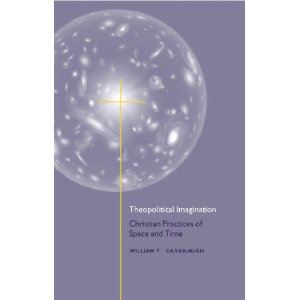I went to a good, old-fashioned revival last week. I found it interesting that in this age of mega-churches and coffee bars in the foyer and big-screen HD technology, this meeting still had many things that I had seen before in revival meetings.
Consider the following features: it drew a big crowd and opened up with music. We were told to go out and go door to door to spread the faith in our neighborhoods. We were told that we shouldn’t be shy to talk to our co-workers and neighbors and friends. We were told we lived in a broken society and we were part of the solution to set things back down the right path. Then we hit a musical interlude in which a quartet sang “Amazing Grace.” And finally the main preacher got up and stirred the crowd with an impassioned message, reminding us that we were part of something bigger than ourselves. Right before the final music, he told us that the greatest hope for earth was….
Wait a minute. I’m sorry, I got confused.
This wasn’t an evangelical revival. It was a political rally for Mitt Romney. (Four blocks away from my house, actually, at the local high school baseball field).
The similarities of the Romney rally to evangelical religious revivals are not merely interesting coincidences. (And let me just annoy both the die-hard Democrats and die-hard Republicans among you by saying that Obama rallies and Romney rallies are pretty much structured the same way.)
There is a historic connection between political campaigns and revivals. As early as the 1740s, George Whitefield and other evangelical revivalists pioneered techniques for preaching to large audiences – often outdoors. By the early 19th century Baptist and Methodist revivalists (like the circuit-riding guy on the horse on my blog masthead) had perfected these methods. They became so widespread and so effective that politicians picked them up for their own campaigning purposes. These rallies have been a part of our political culture ever since.
I wonder if this is more than a historic curiosity, though. This past Sunday, while speaking on a totally different topic, my pastor pointed out that we make idols out of all sorts of things, and we aren’t even aware that we do it.
In the passion of a political campaign, we can make politics and the United States itself into an idol. It seems to me that the subtle similarities to evangelical revivals can stoke hopes and desires that this candidate, this political party, this policy, this nation will save us from the woes that beset us.
Ponder this: at the close of his rally the other night (right before the fireworks), Mitt Romney declared that America is the hope for the world.
No.
Jesus Christ is the hope for the world.
Wise political leaders, well-crafted policies and effective governments can bring order to society and limit evils and sins that we humans inflict on one another. We need to do the best we can to work for good government, which has an important role in this world. That role, however, is not that of savior. Politicians, policies and the nation cannot eliminate those evils or sins, nor can they truly save us from them.
American political leaders have long had a habit of slipping into over-the-top rhetoric because it gets American audiences fired up. We hear it and we don’t even realize that we are asking the United States to take on the role that only Christ can fulfill. In 2008 Barack Obama declared that “the United States is the last great hope for humanity.” Sarah Palin proclaimed that “America is the greatest earthly force for good the world has known.” Abraham Lincoln, that kindly, avuncular, home-spun Midwesterner on our penny said “My dream is of a place and a time where America will once again be seen as the last best hope of earth.”
How do you like your idolatry? It comes in tasty Democrat, Republican and historic flavors.
For those of you who want a sophisticated and challenging theological discussion of these things, I would recommend Theopolitical Imagination by William T. Cavanaugh, particularly his essay, “The Myth of the State as Savior.”
Otherwise, ponder (and pray about) this question this election season: when, where and how do we slip into this kind of idolatry? And what kind of citizen is Christ calling me to be?
